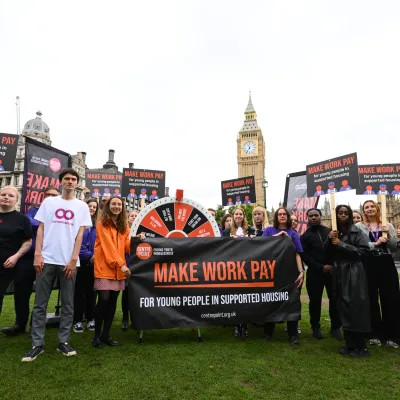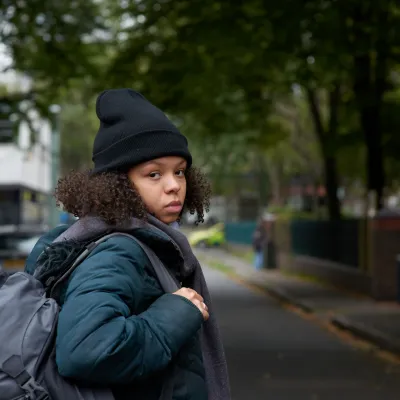DSS discrimination affects the people who need homes the most. Here’s what you need to know – and how we can stop it from happening.
First things first: what is DSS?
Well, the term DSS is confusing within itself. DSS stands for the “Department for Social Security” – a government department that was responsible for benefits payments, but hasn’t existed since 2001. Still, most people recognise the acronym, especially within the context of “No DSS”. For letting agents, “DSS” is supposedly the easiest way to refer to tenants who are going to be paying some or all of their rent using benefit payments.
So what’s the issue?
Scan any property rental site and it’s likely that “No DSS” will crop up a number of times. This is when landlords won’t let their property to someone if they are on benefits.
This is known as DSS discrimination, and it is rife in the world of renters. For private landlords, “No DSS” is essentially a way of telling those claiming benefits that they will not be considered as a tenant, regardless of whether they’ve historically always paid their rent on time, or have great references.
The stigma attached to DSS renters can be encapsulated in one simple advert: “No DSS. Small dogs considered.” It’s an ad that’s practically Hemingway-esque, telling the tale of a society that will put almost anything above the care of its most needy. It is the 21st century iteration of “No blacks, no Irish, no dogs.”
The reasons for DSS discrimination comes in many forms: in our 2018 report Ready To Move On, 66% of landlords cited rent arrears as a concern, for example, while 58% were worried about a tenant engaging in antisocial behavior. Whatever is inside this Russian doll of excuses, one simple fact remains true: as one (rather honest) landlord told us, there’s “no way in hell I’d rent to a homeless person.”
This prejudice massively hinders the progress of the young people we help at Centrepoint. Our report revealed the attitudes of some landlords make access to the private rented sector even harder for vulnerable and homeless young people, and this sense of not being wanted by private landlords was felt almost viscerally by those who need their homes the most.
Just how big is this problem?
In a nutshell, it’s big. In 2017-18, 889,000 households in the UK relied on Housing Benefit to help pay their rent. The prejudice against those claiming benefits to cover their rent is only getting stronger; even though many are in work. There is evidence to suggest that private landlords who specialise in the ‘housing benefit’ market – i.e. those who are attracted to the possibility of direct payments and regular rents – are moving away from letting to benefit claimants because of their concerns with the rollout of Universal Credit and Local Housing Allowance. In fact, between 2011 and 2017, the percentage of landlords who are willing to accept tenants in receipt of benefits dropped from just under 40% to 17%.
What effect does this have?
This discrimination is something that affects a large number of Centrepoint’s young people. Once the young people we support are ready to move on from our services into independent living, its entirely likely that they will be in receipt of Universal Credit in order to help pay rent. The stigma against those claiming benefits often characterizes them as people who don’t work, but in reality the majority of people, including those in our services, will also be in employment. At Centrepoint, our mantra is “a job and a home”, but DSS discrimination means the former is making the latter far more complicated.
According to our latest report, Young, Employed and Homeless, many young, vulnerable people will take on what is known as “precarious employment”, such as zero-hours contracts, agency work or temp gigs. This can often be the only work available to homeless young people, who are considered the furthest from the job market. (For myriad reasons, such as poor mental health or criminal records, it can be difficult for them to obtain full-time, permanent employment.) However, these jobs are badly paid and don’t offer job security.
So is it really any wonder that these people need a hand paying their rent? It’s not entirely unfathomable to be responsible and in need, is it? So not only are people fighting low-paid jobs and sky-rocketing rental prices, but the one thing that could provide the antidote to these two factors is constantly being contested by an antiquated prejudice.
How do we end DSS discrimination?
To tackle this problem, we have to attack it at the root. One of the major issues comes down to the restrictions mortgage lenders set for buy-to-let properties: many lenders will stipulate in their contracts that the property can’t be rented out to those in receipt of housing benefits, which inevitably leads to those dreaded “No DSS” ads.
After Centrepoint made them aware of the repercussions of this contractual proviso, our charity partner The Co-operative Bank, agreed to stop restricting landlords from letting to tenants in receipt of housing benefit – a change that will be replicated across all lending brands of bank.
Gordon Soutar, managing director of mortgages at The Co-operative, said in April: “We are glad to be able to remove this condition to the benefit or our landlords and prospective tenants who previously may have been restricted from taking up tenancy due to the inclusion of this letting condition in our mortgage terms and conditions.
“Centrepoint has raised this issue and the potential impact that this condition of let could have on the young people they work with. This is not a condition that we want to continue to include in the mortgages that we offer and we will no longer enforce these clauses in our mortgage terms and conditions from Monday 1 April and we will completely remove this condition from our processes and systems with a completion date of 19 May 2019.”
And other mortgage lenders are following suit: NatWest lifted restrictions on letting to tenants in receipt of housing benefit after mounting pressure, as has Nationwide. Property site Zoopla has also agreed to stop show ‘No DSS’ lettings, and there is a petition to put pressure on RightMove to do the same.
This is a positive start. But DSS discrimination is still widespread – the stigma is so ingrained that our research showed it can be a challenge to find a private landlord who will even consider letting to a young person who has been homeless, before considering their ability to afford the rent and upfront costs of moving in.
Primarily, it’s about raising awareness in order to change people’s perceptions – for example, Housing campaigner Philippa Lalor wrote a first person piece for Metro Online about her experience trying to rent a home as someone claiming housing benefits.
Perhaps prejudices would begin to overturn if people were aware of the more positive effects of taking in a tenant on benefits. From our research, 47% of landlords said they had a favourable experience after letting to homeless people, rather than an unfavourable one (31%), suggesting that the refusal to let to young people moving on from homeless accommodation is down to negative perceptions more than poor experiences.
Plus, one participant we spoke to who had successfully moved into independent living was keen to stress the good relationship she had with her landlord, who allowed her to decorate and had been flexible in allowing her to pay her deposit over a longer period. This is just evidence that trust and understanding between both landlords and young people means it’s entirely possible to create a successful and positive tenancy that works for both parties.
Read our reports
If you would like to find out more about DSS discrimination, read our report Ready To Move On. If you would like to find out more about employment and homelessness, read our report Young, Employed and Homeless.





